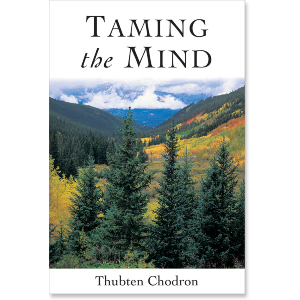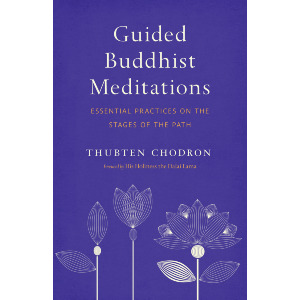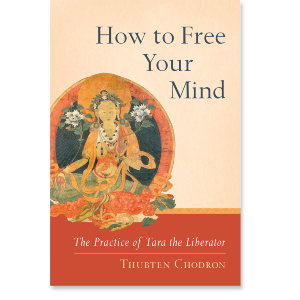Being Honest
Our spiritual mentors are our best friends, and it’s to our advantage to speak and act honestly with them. Some students are two-faced: They act well in the presence of their teachers, but at other times they gossip, lose their temper, and mistreat others. This is counterproductive.
Nor should we try to win our teacher’s favor by pretentious sweet talk. Who are we fooling? Our master cares about the state of our minds, not about superficial appearances.
It’s hypocritical to be kind to our teachers and rude to others. Our teachers want all beings to be happy, and thus we contradict our teachers’ advice when we’re belligerent and mean to others. If we hold our teachers in high esteem and other beings in contempt, we haven’t understood the true meaning of the Dharma. To progress on the path, we need to treat both our teachers and other people with respect.
Let’s think deeply about the meaning of respect. Some people confuse respect with fear and are then painfully shy and afraid of doing something wrong near a religious practitioner. There’s no need to be emotionally immobilized like this. Interestingly, it may be our selfish mind that is afraid to look bad or foolish in front of someone else.
On the other hand, we shouldn’t treat our masters like casual friends. A balance is required: Let’s endeavor to have a good motivation and act well both when we’re around our mentors and when we’re not. But at the same time, let’s not be afraid to admit our bad qualities to them. We can be honest with our teachers and seek their advice on how to improve.
Cherishing Our Teachers vs. Being Attached to Them
Some people confuse commitment to their teachers with attachment to them. This can be very painful, for if our teachers don’t give us as much attention as we want, we then feel rejected. Attachment causes us to cling to our masters for emotional security, praise, and attention. But as we develop true appreciation of our teachers, we’ll recognize their qualities and will be grateful for their kindness.
Attachment is self-oriented, while cherishing our teachers is based on sincere spiritual aspirations. Of course, we may miss our teachers when we’re separated from them for a long time, but we must ask ourselves if we’re missing them because we want Dharma teachings and guidance or because we want to feel loved.
The purpose of having a Dharma teacher isn’t to please our egos but to destroy our ignorance and selfishness by practicing the teachings. Our teacher’s job is not to meet our emotional needs but to lead us on the path to enlightenment.
When our teachers point out our faults, we can be happy that they care for us enough to do this. They trust we’ll welcome their advice rather than be offended. One time I saw a master tell a student his mistakes at a large gathering. I thought, “That must be a close disciple. The master knows that person wants to eliminate his egotistical pride and won’t mind being publicly reprimanded.” In fact, when I got to know the disciple, I discovered he was indeed a good practitioner.
Our relationships with our teachers will grow and develop over time. They can be rewarding relationships, because by depending on wise and compassionate spiritual guides, we’ll enhance our good qualities and eliminate our unwholesome ones. The closeness we feel with our spiritual mentors, who are genuinely concerned with our welfare and progress, is unlike the relationships we have with others. Our teachers will never stop helping us, no matter what we do. While this isn’t a license for us to act recklessly, we needn’t feel insecure that our teachers will cut off the relationship when we make mistakes. Our spiritual mentors are forgiving and compassionate, and we can therefore trust them.
As our understanding of the path to enlightenment deepens, so will our feeling of closeness with our teachers. This occurs because our minds become more similar to theirs. As our determination to be free increases and our altruistic motivation develops, we’ll feel naturally close with our teachers, for we’ll have the same interests and goals. Developing the wisdom realizing emptiness diminishes the feeling of separation that is caused by grasping at inherent existence. Eventually, when we become Buddhas, our realizations will be the same as those of our teachers.
From Taming the Mind by Thubten Chodron


 Ordained as a Tibetan Buddhist nun in 1977,
Ordained as a Tibetan Buddhist nun in 1977, 










